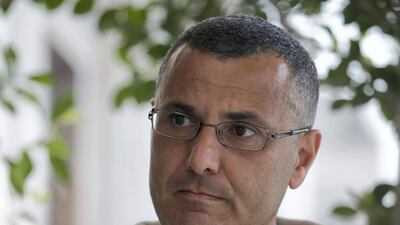Israel’s Interior Minister said on Sunday that the country planned to revoke the citizenship of Boycott, Divestment, Sanctions movement founder Omar Barghouti.
“Tonight, I instructed the Population and Immigration Authority to prepare an opinion to cancel residency in Israel by Omar Barghouti, founder of the boycott movement on Israel," Aryeh Deri said on Twitter.
“He is a person who is doing everything to hurt the country, and therefore he cannot enjoy the privilege of being a resident of Israel.”
The decision came after deputy attorney-general Dina Zilber said Mr Deri had the authority to revoke the activist’s citizenship.
A 2018 amendment to the residence law allows the interior minister to cancel resident status over breach of trust, without approval from the attorney general’s 0ffice.
Mr Barghouti lives in Acre, north-west Israel, and has a PhD in ethics from Tel Aviv University. He moved to the country in 1993 after marrying an Israeli Arab woman.
He has been criticised for his opposition to the two-state solution, instead believing in a “secular, democratic state offering unequivocal equality in citizenship and individual and communal rights both to Palestinians and to Israeli Jews".
Although there is some dispute about how and when the BDS movement began, Mr Barghouti is credited as one of its founders.
He also founded the Palestinian Campaign for the Academic and Cultural Boycott of Israel, a campaign launched by Palestinian activists in Ramallah in 2004, which is part of the BDS movement.
The movement calls for equality between Israelis and Palestinians.
To achieve this, activists believe that Israel should be pressured through boycotting and that the international community should condemn the country’s actions that breach human rights.
But in the past, the movement has sparked controversy because its policy was interpreted as anti-Semitic, rather than critical of the Israeli government.
Despite a general election deadlock, incumbent leader Benjamin Netanyahu and rival Benny Gantz have committed to further annex the occupied Palestinian West Bank territory if they become prime minister.
The move, to win over pro-settlement activists, has caused further division between Israelis and Palestinians.
Jordan’s Foreign Minister Ayman Safadi has criticised the plan, saying that it would “push the whole region towards violence”.

